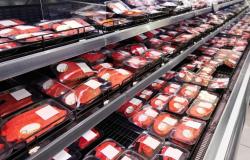+++By Abdoulaye Diallo+++
Tambacounda, January 21 (APS) – The agricultural company Agro Beydaare has set itself the ambition of making the Tambacounda region self-sufficient in vegetables by focusing on sustainable crops, in an area already severely tested by the loss of ecosystems. foresters.
Based in the south-east of Senegal, Agro Beydaare Senegal has been investing since 2015 in agricultural production, agri-food, agricultural development, advice, training and various services.
On this January day, the sun is about to set on the horizon. But Amadou Tidiane Diallo, the president and CEO of Agro Beydaare, and his team are hard at work planting chili peppers and other condiments grown on the site.
On this five-hectare farm located in Botou, in the commune of Sinthiou Malème, two kilometers from the town of Tambacounda, biodiversity coexists harmoniously with agricultural activities.
The microclimate that reigns under the mango trees is an obvious sign of this symbiosis between market gardening and arboriculture.
Managers cultivate several crops through market gardening and off-season crops, particularly corn.
This production model, almost new or even rare in Tambacounda, is presented by its initiators as the one which will allow eastern Senegal to be autonomous in vegetables in the coming years.

Producing quality, the main objective of the company
”Here the migration towards environmentally friendly farming methods remains a big challenge, this is seen with the establishment of a composting plant whose objective is to transform all waste and residues into natural fertilizers’ ‘, boasts Moussa Ndiaye, project manager of the Agro-Beydaare group.
”Thanks to the organic fertilizers that we use, we produce quality, it is important to produce quality because it is about food and whoever talks about food will necessarily talk about the health of populations”, adds Moussa, his gaze fixed on the different activities that take place on the farm.
In this site, the group practices arboriculture, notably Angola weight, Moringa, cashew and fruit trees such as mango. To maintain the farm, the company seeks the services of a group of women based in the town of Tambacounda.
“We invite this group of women every time we have tasks to do and they are paid per day,” says Amadou Tidiane Diallo, the CEO of the company.
”For arboriculture, we focused on the moringa, the mango tree, the corner weight, the guava tree, the baobab and the cashew nut. We developed this site with our own funds and with the help of a few partners,” he said.
The Agro-Beydaare group has also focused on nutrition with the use of organic fertilizers to obtain clean and healthy vegetables.
”For market gardening, we grow all kinds of vegetables and when we talk about nutrition, that means that we must produce healthy products before marketing,” says Mr. Diallo.
-
The agricultural company also manufactures natural fertilizers using crop residues.
”For composting, we use the residues of our crops to have products that allow us to strengthen our crops, preserve the environment and fight against soil degradation,” says Amadou Tidiane Diallo.
Moussa Ndiaye, the company’s project manager, explains that corn residue is mixed with straw, grass and ash to make compost. ”Our credo is not to throw anything into nature: everything is transformed. These fertilizers are very effective,” he said.
Agro Beydaare’s ambition is to spread these farming techniques throughout the Tambacounda region. To achieve this objective, young people are trained in composting techniques.
”We are in the process of training young people in composting and we are going to set up kiosks selling compost, which we produce to further popularize these cultural practices and fight against global warming in the region,” indicates the CEO of the company.

Plea for support from the State
Two aquaculture stations have been set up on this agroecological farm, the drain water of which serves as fertilizer for the crops grown on site. The company also plans to install an oven for the production of organic charcoal without smoke and not harmful to nature.
”We are in the process of setting up an oven for organic charcoal, because we want to increase our corn production and if we manage to do so, the corn residue will be transformed into organic charcoal,” confides the CEO of the company. ‘business.
»At the moment, we are at the start of the production of off-season crops. You see, we have less than a hectare. But, with organic composting, we can harvest up to four tonnes per hectare. This is why we are considering expanding the site,” he says.
Agro Beydaare’s ambitions are, however, put to the test by a certain number of difficulties, including the wandering of animals and the question of water.
”We need solid equipment to solve the irrigation problem. For irrigation, we pay 200 thousand CFA francs per month. If you don’t checkout, the water is turned off. So, we need support from the State, but we are not waiting. We are committed to supporting the country’s development process,” insists Amadou Tidiane Diallo.
”We are not waiting for the State to make things happen, but it is important that the State can put the resources where it is needed. If you take our farm, there are around thirty people working there without support from the State. In any case, we will continue the work to participate in the development of the primary sector in the Tambacounda region,” he promises.

ABD/ASG/ASB/OID





